Uno de los más perversos frutos del Vaticano II fue el acabar con los Estados oficialmente católicos. El caso de España, donde Pablo VI obligó a Franco a aceptar la libertad religiosa tras el Vaticano II, es proverbial. Permítaseme clarificar que una cosa es la libertad religiosa y otra la tolerancia religiosa (que Franco, y los demás Estados católicos, ya tenían, por cierto). Pero ahí estuvieron otros casos, como Portugal. También los de los países hispanoamericanos como Colombia, Costa Rica, etc. E incluso Italia bajo el Pontificado de Juan Pablo II. Contrasta esta actitud autodestructiva con la que algunos países norte-europeos siguen al mantener indeleble su constitución protestante. El Reino Unido de la Gran Bretaña es oficialmente anglicano y, por ejemplo, si un Príncipe o un Rey de ellos se hiciera católico quedaría automáticamente eliminado para el cargo. Otro tanto se puede decir de Holanda, la moderna Sodoma y Gomorra de los Países Bajos (más bajos que nunca), que es oficialmente calvinista. Dinamarca sigue siendo oficialmente luterana, con todas sus consecuencias. Y se podrían citar más ejemplos.
Aunque la Iglesia Romana siempre ha mantenido la separación de poderes, el espiritual y el temporal, a diferencia de la cismática Iglesia Ortodoxa, que cayó en el cesaropapismo, esa separación no es absoluta. De hecho la Iglesia siempre ha dicho que el poder espiritual debe informar al poder temporal y el símil tradicional es el del alma (el poder espiritual) y el cuerpo (el temporal).
Los revolucionarios de 1776 y 1789 (en el fondo vienen a ser la misma cosa, las diferencias son de matices) y sus herederos, los liberales, suelen llenarse la boca de la separación de Iglesia y Estado mantenida en América. Desmontemos ese mito de mano del nunca bien ponderado Athanasius contra Mundum, una de las mejores bitácoras sobre temas religiosos (en temas políticos me parece más discutible) que pululan por ahí en lengua inglesa y que fervientemente les recomiendo.
Con la parte del texto que analiza este mito, y uno previo que se suele añadir como prólogo, les dejo. Las consecuencias que se infieren se las dejo a su mejor consideración. En esta transcripción, y por motivos de espacio, he suprimido una digresión sobre los impuestos y la burocracia, pero para aquellos que les interese el tema completo lo pueden encontrar aquí.
«Myth#1: The Pilgrims came to escape religious persecution and find freedom.
False The colonists did not escape persecution to bring freedom, they came to do just what England was doing but to do it to someone else. Until 1830 Catholicism was illegal in Massachusetts and Connecticut. During the colonial and revolutionary periods, if you were a Catholic and caught in the puritan run colonies, you could get a “P” branded on your forehead (for papist). If you were a Society of Friends (Quaker) you would get a Q branded on your forehead. In the South if you were a Catholic you could not hold office. Irish Catholics who had managed to escape the greatest persecution seen since Diocletian in England came over to similar laws and discriminations in America.
Myth#2 America was founded on the principle of Separation of Church and State
FALSE This was found only in a letter from Jefferson who was in France and imbibing French Revolution ideals, to his colleague Madison who disagreed with the proposition. It is the only place “Separation of Church and State” appears in American Literature until the Supreme Court under Hugo Black a former KKK grand wizard in the 60's inserted that language into a decision. There was no separation of Church and State, except in the decision Engel vs. Vitale. (incidently I find it amusing that liberals point to this decision which was written by an ex-KKK member who wanted to prevent Catholics and Jews from getting public funds). There was a prohibition on fixing a state religion to which everyone had to adhere like in England.
The first amendment is a restriction on the power of the federal government, it is not a restriction on religion. Modern interpretations of this simply fly in the face of logic, history, and the original intent which was clearly spelled out. The amendment along with the other ten composing the bill of rights were necessary, because a number of people did not approve of the constitution, whom history labels “anti-federalists”. Among them was Patrick Henry of “give me liberty or give me death” fame. Henry is quoted frequently before the Constitution was created, and rarely afterwards.
[…]
Going back to the idea of a separation of Church and State, it has been condemned frequently by the Church, by great popes such as Bl. Pius IX, Leo XIII, Pius X (who loved Americans and had an American cardinal to thank for supporting him for his election), Pius XI and Pius XII. However most of that condemnation was aimed at France with its rigorous secular practices. It is well known that during the revolution saints names were replaced with (surprise) the names of the revolutionaries and their philosophers like Rousseau, Voltaire etc. and the renaming of Churches the "temple of reason". (!) At the time America however was still seen as a religious nation. The Catholic Church in America was thriving, because it understood what Pius XI would later write in Quas Primas, namely that every nation and every state must confess Christ as its king in order to be a healthy state. The priests, Bishops and faithful had as their goal to convert the entire country. A 19th century Archbishop of New York, John Hughes (1787-1883) proclaimed:
[Catholicism] will convert all Pagan nations, and all Protestant nations, even England with her proud Parliament.....Everybody should know that we have for our mission to convert the world-including the inhabitants of the United States-the people of the cities, and the people of the country, the Officers of the Navy and the Marines, the commander of the Army, the legislatures, the Senate, the Cabinet, the President and all.
But then there was Vatican II. And to avoid a tedious rant of stuff I’ve ranted about before, you know the story. The emphasis changed, missionary zeal disappeared, converts declined, suddenly every religion is just as good as another, and the true religion is now proscribed from public schools under the same amendment that used to protect it. America is not a Catholic country, hence it is not a healthy country. As Catholics, we need to recover that zeal of the Catholics who responded to the progressive era, and put not America first, but Christ and his Church first.»
Rafael Castela Santos
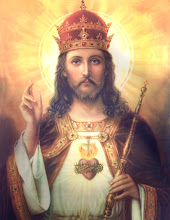



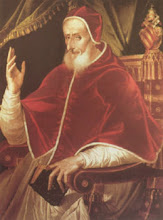
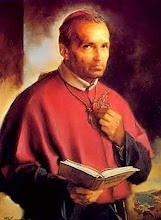
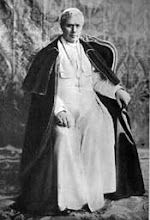
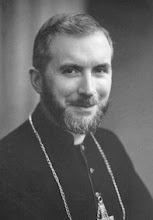

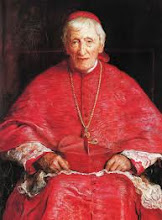


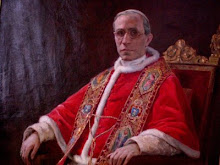
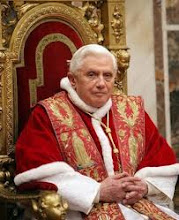


0 comentários:
Enviar um comentário